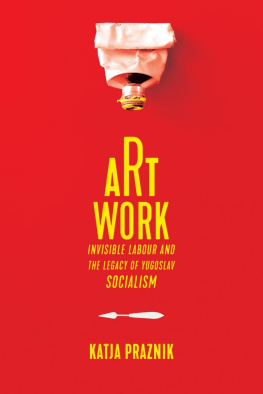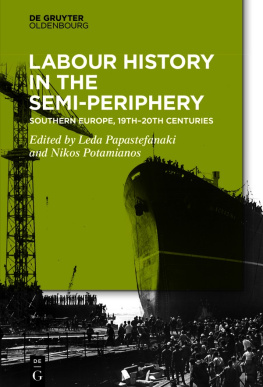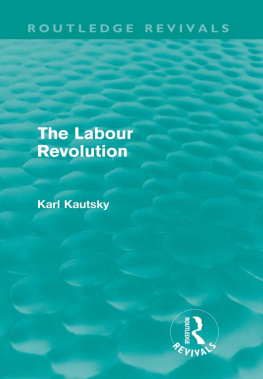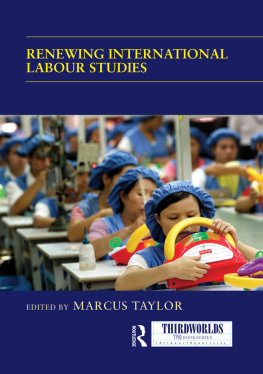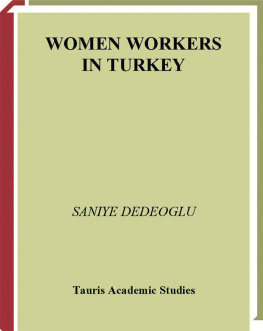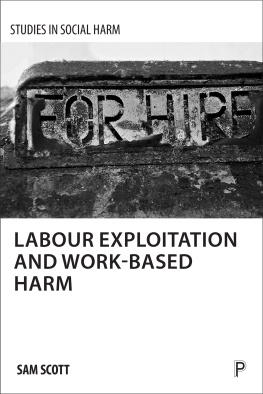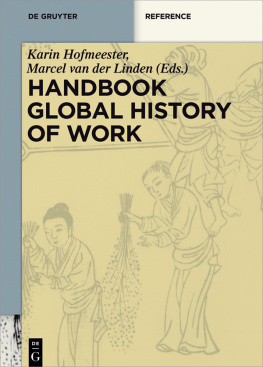Katja Praznik - Art Work: Invisible Labour and the Legacy of Yugoslav Socialism
Here you can read online Katja Praznik - Art Work: Invisible Labour and the Legacy of Yugoslav Socialism full text of the book (entire story) in english for free. Download pdf and epub, get meaning, cover and reviews about this ebook. year: 2021, publisher: University of Toronto Press, genre: Politics. Description of the work, (preface) as well as reviews are available. Best literature library LitArk.com created for fans of good reading and offers a wide selection of genres:
Romance novel
Science fiction
Adventure
Detective
Science
History
Home and family
Prose
Art
Politics
Computer
Non-fiction
Religion
Business
Children
Humor
Choose a favorite category and find really read worthwhile books. Enjoy immersion in the world of imagination, feel the emotions of the characters or learn something new for yourself, make an fascinating discovery.
- Book:Art Work: Invisible Labour and the Legacy of Yugoslav Socialism
- Author:
- Publisher:University of Toronto Press
- Genre:
- Year:2021
- Rating:3 / 5
- Favourites:Add to favourites
- Your mark:
Art Work: Invisible Labour and the Legacy of Yugoslav Socialism: summary, description and annotation
We offer to read an annotation, description, summary or preface (depends on what the author of the book "Art Work: Invisible Labour and the Legacy of Yugoslav Socialism" wrote himself). If you haven't found the necessary information about the book — write in the comments, we will try to find it.
In Art Work, Katja Praznik counters the Western understanding of art as a passion for self-expression and an activity done out of love, without any concern for its financial aspects and instead builds a case for understanding art as a form of invisible labour. Focusing on the experiences of art workers and the history of labour regulation in the arts in socialist Yugoslavia, Praznik helps elucidate the contradiction at the heart of artistic production and the origins of the mystification of art as labour.
This profoundly interdisciplinary book highlights the Yugoslav socialist model of culture as the blueprint for uncovering the interconnected aesthetic and economic mechanisms at work in the exploitation of artistic labour. It also shows the historical trajectory of how policies toward art and artistic labour changed by the end of the 1980s. Calling for a fundamental rethinking of the assumptions behind Western art and exploitative labour practices across the world, Art Work will be of interest to scholars in East European studies, art theory, and cultural policy, as well as to practicing artists.
In this timely book, the sociologist of culture Katja Praznik analyses the paradoxical nature of art as socially useful labor and parses the regimes of compensation that artists receive under different political systems. Vladimir Kuli, Critique dart
Moving beyond the traditional critique of artistic autonomy, in this brilliant, pathbreaking book, Katja Praznik shows how a feminist critique of unpaid reproductive labour is a vantage point from which to rethink the contradictions and potential of art work both as a terrain of exploitation and as a contributor to radical practice. A must read. Silvia Federici, Professor Emerita of New College, Hofstra University
Art Work is an important contribution to recent debates among artists, scholars, and activists about the precarity of artistic labour under conditions of neoliberal capitalism. Taking her case studies from the rich history of new artistic practice in the former Yugoslavia, Katja Praznik offers a valuable art historical perspective on issues that are usually claimed by sociologists and economists. Praznik paints Yugoslav self-management not as an alternative to advanced capitalism, but as an integral part of its complex history and as a vantage point from which its contradictions become clearly identifiable. Branislav Jakovljevi, Professor and Chair at the Department of Theater and Performance Studies, Stanford University
In this unique and rich contribution, Katja Praznik foregrounds the centrality of culture and the arts in the economic and political transformations of Yugoslavian society from self-management to the social crisis of late socialism and beyond. Art Work weaves together critical and visual studies, feminism, the political economy of socialism, and art-historical discussions to develop an important and much-needed critique of the mystification of creative labour in socialist societies and its role in the embrace of neoliberal capitalism. Zhivka Valiavicharska, Assistant Professor of Political and Social Theory, Pratt Institute
Katja Praznik is an associate professor in the Department of Media Study/Arts Management Program at the State University of New York at Buffalo.
Katja Praznik: author's other books
Who wrote Art Work: Invisible Labour and the Legacy of Yugoslav Socialism? Find out the surname, the name of the author of the book and a list of all author's works by series.

